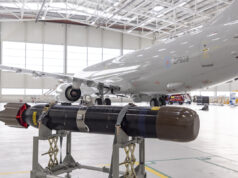Ukraine war: why propaganda doesn’t work as well in Belarus as it does in Russia.
Though Russia has accidentally bombed one of its own villages, implemented a harsh conscription policy, and already faced 315,000 casualties, Russian support for the “special military operation†in Ukraine has not wavered much. Throughout the conflict, levels of support have averaged about 75%.
In contrast, Belarusian people are far more wary of being drawn into the conflict. Based on a survey conducted by the thinktank Chatham House in August 2022, only 25% supported Russia’s actions (if it meant not getting directly involved), while a whopping 97% opposed the deployment of Belarusian troops.
This article is the opinion of the author and not necessarily that of the UK Defence Journal. If you would like to submit your own article on this topic or any other, please see our submission guidelines.Â
Additionally, a surprisingly low number of Belarusians (26%) said they would feel negatively if Belarusian soldiers refused to fight or follow orders. Some Belarusians have even become directly involved in the conflict to support Ukraine, such as in May 2023 when Belarusian volunteers tricked the Russians into firing on their own positions in the town of Bakmut.
As conducting surveys in authoritarian regimes draws concern that the responses may be biased in favour of the regime, this makes the results in Belarus even more surprising. Meanwhile, the country’s president, Alexander Lukashenko, has allowed Russian troops to pass through his territory to invade Ukraine, and supported Putin’s invasion.
Why Belarus is different
For the most part, the majority of urban Belarusians surveyed want Belarus to distance itself from the war and express neutrality. In contrast to Russians, Belarusian society considers the war senseless and harmful to Belarus.
What explains these diverging views? In general, Belarusians are much more war averse than Russians, with very different memories of what they call “the great patriotic war†(the second world war). Of all of the former Soviet republics, Belarus sustained the most casualties per capita, and since gaining independence in 1991, it aspired for neutrality – something that was built into its constitution. But this was put into jeopardy from 2020, when Lukashenko was forced to cosy up to Russia’s president, Vladimir Putin, after protests broke out challenging the Belarus election.
Russian propaganda wins
But Russia also lost millions of men to the great patriotic war, so why is Putin so much more effective in convincing Russians to support another conflict, compared with Lukashenko?
In stark comparison to Belarus, Russia has developed a successful propaganda machine that is entertaining, confusing and overwhelming. Flooding citizens with information that demonises its opponents is a key component to Russia’s propaganda strategy.
Russian propaganda uses a large number of channels and constantly disseminates falsehoods at high volume and speed. This onslaught of propaganda makes it even harder for its citizens to discern what is false and what is the truth. Indeed, research has demonstrated that receiving similar messages from multiple sources, no matter the veracity, is very persuasive.
Russia has been agile in targeting social media, using the popular messaging platform Telegram to create different channels that support pro-Kremlin narratives. In gearing up for the war against Ukraine, Russia promoted the myth that Russia’s defeat of Nazi Germany in the second world war should be a rallying point for the population in the fight against Nazis in Ukraine. Putin repeatedly made claims that were disseminated through various media channels that Ukraine needed to be de-nazified.
Research has suggested that Putin’s propaganda has elicited strong support for a military invasion among Russians, and that the Russian public’s preferences for using military force were easily manipulated. After Russia invaded Ukraine in February 2022, state-controlled media outlets promoted claims that Ukraine was developing biological and nuclear weapons, engaging in ethnic cleansing, and using Russian-speaking residents in Ukraine as human shields. Since the invasion, Russia focuses less on the Nazis and more on fighting the west – promoting the idea that Russia is the underdog.
To counter information that challenged these views, Russia blocked western social media platforms, labelling them extreme organisations, and a law was passed which could impose a penalty of 15 years in prison for intentionally spreading false information about the war. While Russians have access to alternative news sources and can use VPNs, support for the war can be linked to the effectiveness of Putin’s propaganda, and many Russians genuinely believe the regime’s narratives.
In contrast, Belarus has not been as effective in using propaganda to garner support for the conflict, or Lukashenko. A poll in 2020 in the lead-up to the presidential election found that only 3% intended to vote for him (whereas Putin has been polling at over 70% since February 2022). This resulted in authorities banning Belarusians from conducting independent social research.
In addition to Lukashenko being unpopular, Belarus’s state media has little credibility with ordinary people. Unofficial media are seen as a better source of information, particularly since Lukashenko mismanaged his messaging during the COVID pandemic.
Non-traditional media has been harder for Belarus to regulate, with platforms such as YouTube, Instagram and Telegram accumulating millions of followers and remaining free from state interference. Opposition rallies streamed live in August 2020 drew over 1 million viewers. A channel called Nexta, created by a Belarusian teen in 2015, became a primary source of news distributed through YouTube and Telegram. Belarus has tried to buy up Telegram channels in order to counter anti-regime messages, but has not had a strong presence.
In contrast to the Russian media, which has become a weapon in its own right, the Belarusian state media remains a relic of Soviet times. Modern communications are not Lukashenko’s strong suit – Russian media outlets reported that he does not even own a smartphone. He has not invested much in the state-run media, which remains unsophisticated. The most that the state can do is block and jam outside information – it has little ability to craft emotionally appealing messaging that resonates with an audience.
Though Russia has tried to exercise greater control over Belarus (and Lukashenko has been a willing junior partner), there is little evidence that there will be much buy-in from Belarusian society. It remains resilient and defiant in spite of all the efforts to convince it otherwise.![]()
Natasha Lindstaedt, Professor, Department of Government, University of Essex.
This article is republished from The Conversation under a Creative Commons license. Read the original article.













Then let’s get fully behind supporting Ukraine with all it needs to deflect Putin. It’s Ukrainian blood; but just our money. And not even the latter where Western states inward invest a significant total of those funds – to their industrial and security benefit, ultimately.
Either way, the die is cast; war’s with us regardless. So let us not risk turning any eastern European states, unenamoured by Russia, back into it’s orbit and thus an enemy of democracy once more. Only agenda’d politicians could turn friend into betrayed enemy.
Tyrants hate the truth getting out to their people. But forcing your brainwashed & brow-beaten people to fight has a lot of milage sadly. I addressed Putins lies by saying, “Nazi is as Nazi does Mr Putin”, on BBC HYS early in the invasion & the BBC removed the comment whenever made, even though its own correspondance said basically the same in a few more words. What a world we live in. Few representatives are a paragon of truth today. New Labour’s “spin” opened the floodgates.
A different level & intensity in Russia/China etc but the difference between us is narrowing.
Certainly it’s always* been the case that humanity is equal**, regardless of ethnicity – to the extent that those who gain the upper hand, even if erstwhile underdogs, will use any new found power to their utmost advantage; that’s whether at the national or individual level as we know.
Hence the timeless appeal – and endless fight – for genuine democratic principal:- the recognition, at least, that those granted representation have periodically to submit to another round of scrutiny at the ballot box. Not much, and definitely haphazard, but better than the alternatives. And still here.
*since 5th century BCE; **unimpressive but realistic definition
Over the centuries Russians have leant how to hide their true feelings and thoughts from whomever is in control at the time. It has become a life skill essential for survival. Non Russians however feel down-trodden under the yoke of Russia and are ever watchful for a genuine opportunity for freedom. All these former eastern block countries will cause Russia a problem in the years to come.